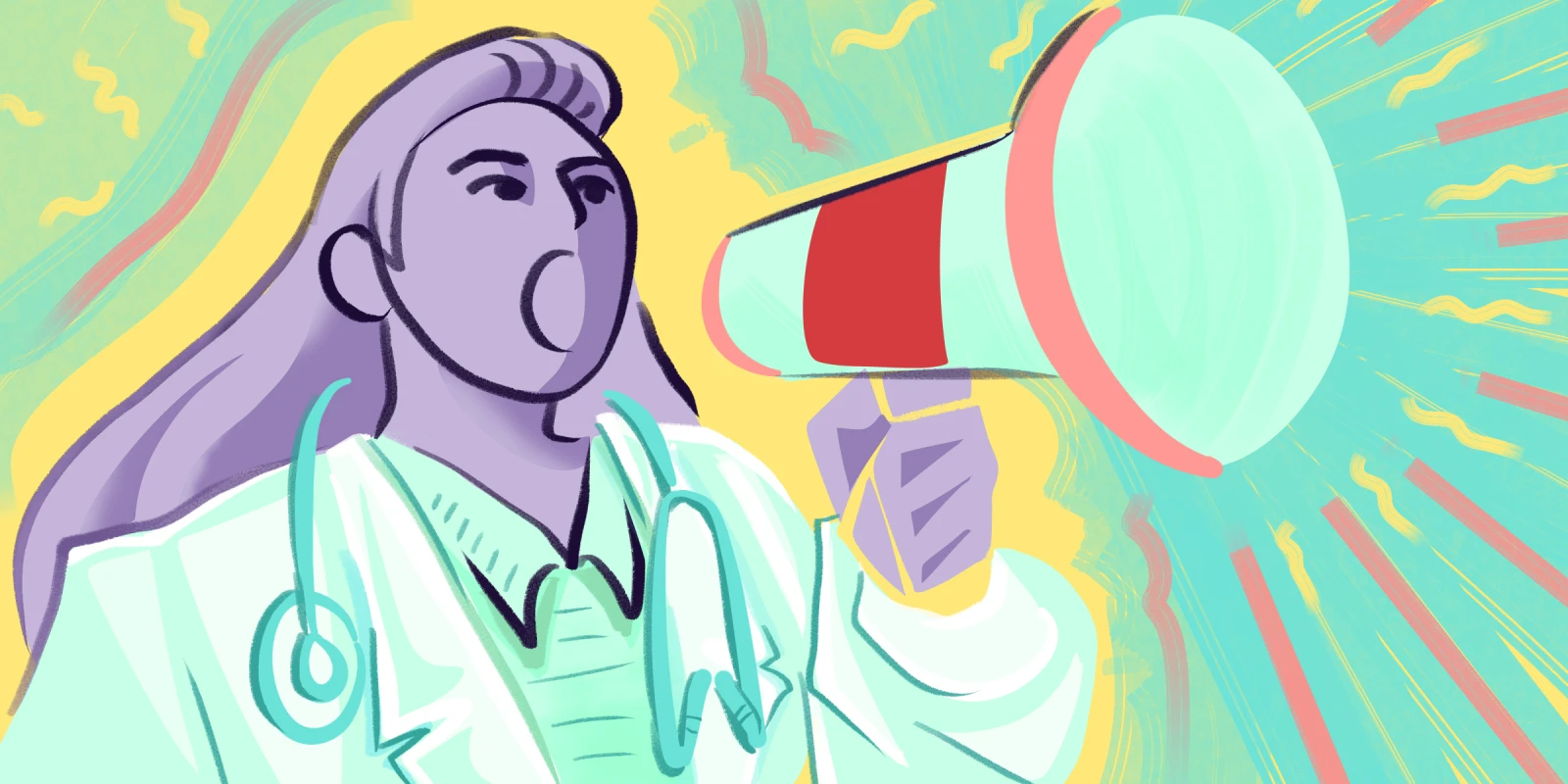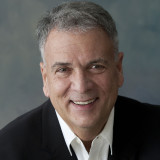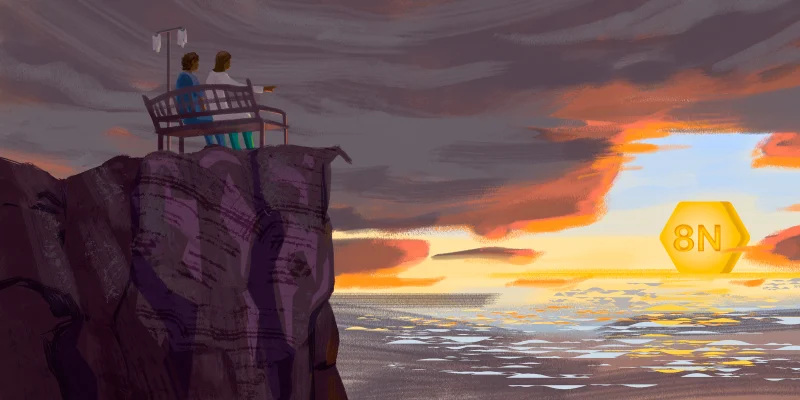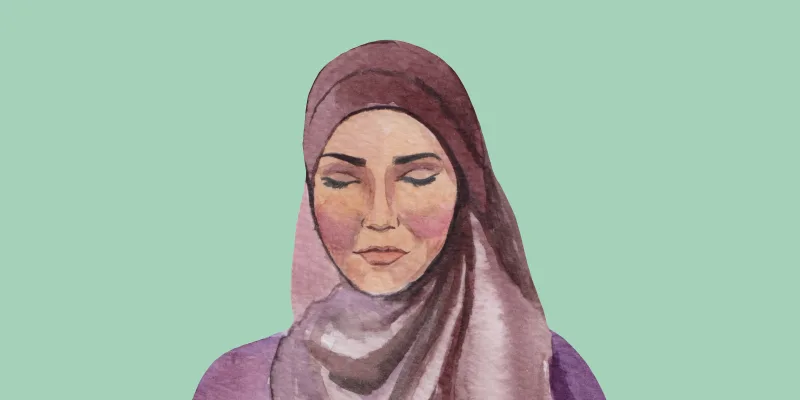Doctor’s Day started out as a good idea, way back in 1933 in Winder, Georgia and only graduated to national holiday status in 1990. It was then quickly seized upon as an easy and cheap way for health care corporations and organizations to feign appreciation for their physicians. They could get all of that pesky, “Thank you for all you do,” nonsense out of the way in the space of one workday and be good for a whole year.
In the modern practice milieu that is increasingly defined by the go-along-to-get-along mantra and an administrative culture governed primarily, it would often appear, by The Peter Principle, I think we need a day to recognize those who refuse to go gently into that good corporate night. I say we establish a new national holiday: Disruptive Doctor’s Day.
Let’s celebrate what really counts. Let’s appreciate the few, the proud, the irritating. Let’s raise a glass to those who risk retaliation and C-suite shunning to speak truth to power. Let’s hand out buttons that proclaim “Disruptive & Proud of It.” By gosh, let’s award a Scarlet Letter “D” to stitch on that lab coat lapel. And let’s make it a real holiday. A mandatory holiday – but only for administrators, who must legally take the entire day off en masse. The doctors will have to work, but what’s one more holiday in a lifetime of them? Just think of it – no predawn, lunch hour, or dinnertime meetings; no emails, no dashboard reports, etc. An entire day to just be a doctor.
For quite a while now, administrators have used the “disruptive” label as a sort of canine shock collar to control physician behavior. I attended a meeting once where a CMO actually used the term “re-education” to describe a program he had in mind for the medical staff members who weren’t bending sufficiently to the corporate will.
Admittedly, disruptive physicians do terrible things. They point out hazards to patient safety and hurdles to good patient care. They voice concerns about dangerously impaired or incompetent colleagues. They try to educate administrators who have little or often no medical knowledge or training. They shine light into dark corners. They question. And from that questioning comes not just improvement but innovation.
But tread carefully. For the road the disruptive physician walks is lonely and fraught with peril. Retaliation and ostracism are the norm. Otherwise decent doctors will exhibit craven cowardice under fire, afraid to be painted with the same broad brush. It’s a depressing spectacle to watch physicians turn on a colleague strictly to curry favor with corporate masters.
Disruptive Doctor’s Day. It’s starting to grow on you already, isn’t it? Maybe it’s just the alliterative appeal of the hard consonants. Or maybe it’s the idea that doctors have always been disruptive. Semmelweis and his silly hand-washing, Pasteur and his pesky sterilization, William Harvey, Robert Koch, Helen Taussig, Virginia Apgar, Elisabeth Kubler-Ross, Jonas Salk, John Gibbon, Jr., Christiaan Barnard, and Anthony Fauci (twice!) – disruptive physicians all. If you practice today, you are descended from a long line of disruptors no different in their time than we are in ours. And they all had or have their detractors, their naysayers, and yes, even their colleagues just waiting and hoping for them to fail — all the more reason to give them their due and their day.
Are there bad disruptions and disruptors? Of course there are. And we know them well: harassment, discrimination, negligence, malpractice, and impairment – all the grim vagaries of human behavior that plague all-too-human doctors. But the moniker “disruptive physician” has been effectively appropriated and co-opted specifically to silence doctors and their concerns, whether it be inadequate PPE during a pandemic or a nonsensical EMR-generated “sepsis alert” that proves no more valid than flipping a coin.
But we should hurry. At some point, the public’s love affair with its doctors will have cooled again and the hospital administrators and health care accountants will have resumed their own viral methods of exploiting our cellular machinery for their survival and benefit. Sure, you saved the world – but now let’s talk about that incident report or that satisfaction survey or your latest work RVUs, shall we?
Want to reclaim our profession? Be disruptive. Get right up in the face of power and speak truth. Start making demands, not polite requests. Break once and for all the stranglehold those who have no medical training — and those who have turned their back on their medical training — currently have on those who do.
What national holiday would you replace "Doctor's Day" with? Share your suggestions in the comments.
Daniel J. Waters, DO, MA practiced cardiac surgery for thirty years and served as a Director of Medical Education for 20 before retiring in 2019. He is now a full-time author and novelist. Dr. Waters was a 2019-2020 Doximity Fellow and is a 2020–2021 Doximity Op-Med Fellow.
Illustration by April Brust







